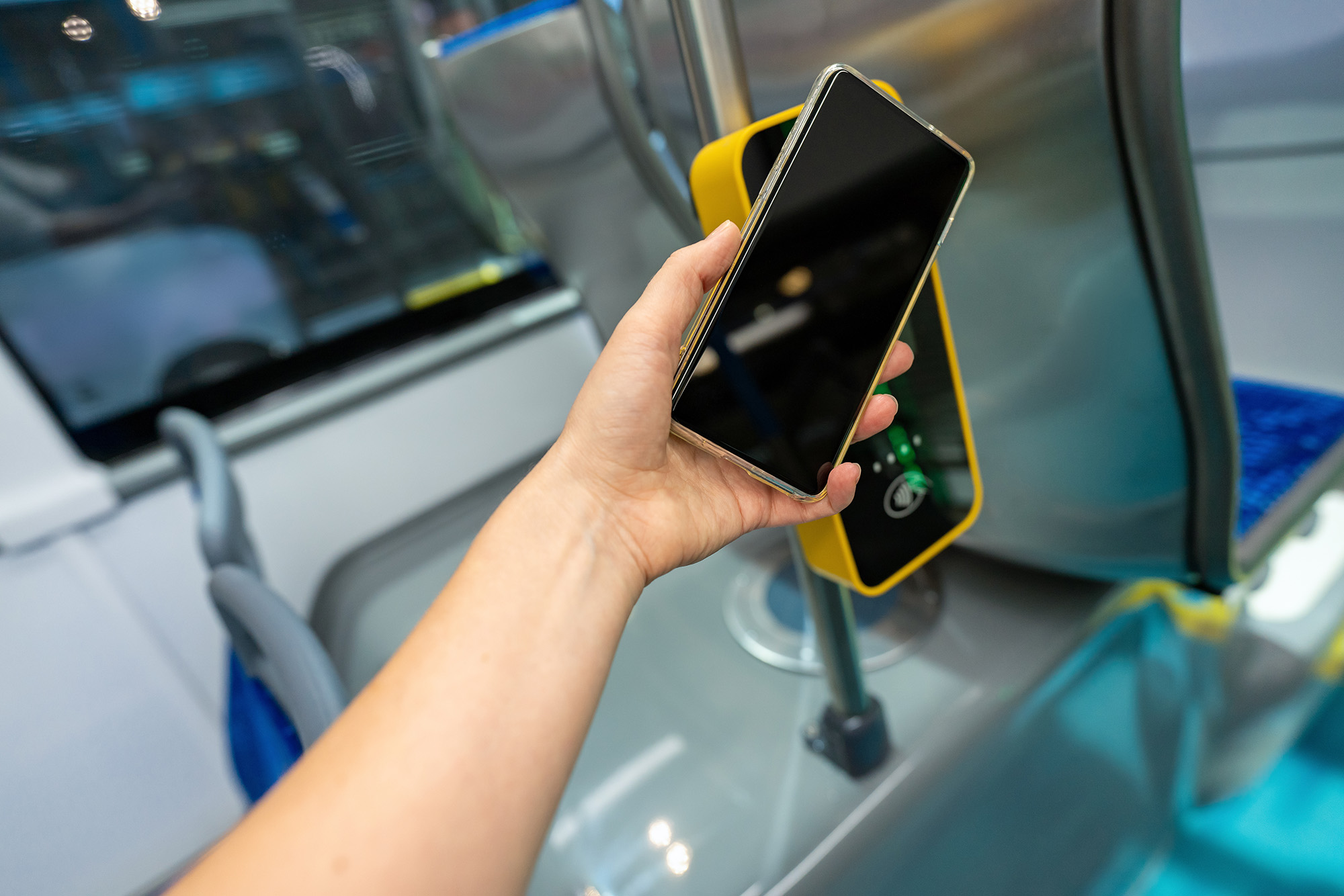Download our latest report - Protecting & growing your payments business -
here Opens in a new window
The Thredd team
April 23, 2025

Here we examine whether 2022 marks the end of the physical wallet. Discover how to ensure you’re delivering what your customers want.


The Thredd team
With a study from Juniper Research finding the number of unique digital wallet users will exceed 4.4 billion globally in 2025, rising from 2.6 billion in 2020, unsurprisingly mobile wallets were a key talking point at this year’s FinovateEurope event in London.
Covid-19 has changed our lives in unimaginable ways. Concerns about the transmission of the virus through objects or surfaces prompted a massive shift away from cash and card machines. Data from LINK showed the number of transactions at UK cash machines plunged by 60% in April 2020 and even by October 2020 cash withdrawals were still 40% lower than the previous year.
A consumer poll by Mastercard in April 2020 across 19 markets found that 79% of consumers were using contactless payments for safety reasons. What’s more, 74% would continue to use contactless payments post-pandemic. E-commerce saw a similar boost: online spending made up 21.3% of US retail sales and more than 30% of UK retail sales in 2020.
With this widespread consumer move towards contactless and digital payments, digital wallets, such as Apple Pay, Samsung Pay and Google Pay, are having their time to shine. Online transactions are easier through digital wallets (or e-wallets) – just a simple click of the mouse and there’s no need to re-enter details for each new purchase. For instore payments on a POS terminal, digital wallet payments are contact-free and the shopper doesn’t have to enter their PIN.
Thredd customer Curve, another digital wallet success story, is live in 31 markets in Europe, with more than 2.5 million customers signing up to date and they’re planning a US launch too. Further evidence towards the argument that this is a growth area.
In 2019, 5% of all POS transactions in the UK came from a digital wallet user. However, by 2020, 55% of UK consumers had a mobile wallet installed. Of that number, 96% used their smartphone to make payments via a mobile wallet.
In Western Europe, there were 59.3 million proximity mobile payment users in 2020, up 18.7% from the previous year [1]. At this rate, by 2023 there will be 70.6 million people in Western Europe who have made at least one proximity mobile payment transaction in the past six months.
In the USA, mobile wallet adoption rocketed from 38% before Covid-19 to 55% after the pandemic hit [2]. In the APAC region, already the global leader in digital payments, digital wallets now account for 58% of regional e-commerce payments, surpassing cash at the point of sale. On a multinational scale, Blackhawk Network noted that 88% of shoppers surveyed across eight countries had used a digital wallet of some kind during the pandemic. Looking to the future, global spending using digital wallets is set to surpass $10 trillion by 2025 [3]. Digital wallets are having a meteoric rise that shows no sign of slowing down.
As well as an uptick in demand due to the pandemic, technological capabilities have helped accelerate the change to mobile wallets too. An increase in the availability and sophistication of the tech has meant that more companies can partner with an external party to provide this specialised software and can have the expertise on-hand to deliver these propositions to their customers without having to recruit a larger team in-house.
By, for example, utilising Thredd software development kits (SDKs), you can bring your own Host Card Emulation (HCE) mobile wallet to market. The customer-friendly features helps deliver world-class customer experiences, and simply elevates card management.
Plus with Thredd's Apex Platform, you have the ability to link the HCE wallet to the Mastercard Digital Enablement Service (MDES) or Visa Tokenization Service (VTS). They substitute the card number with ‘tokens’ to encrypt the data, helping to give your customers reassurance as they make their payments on a Mastercard or Visa card.
As consumers worldwide increasingly adopt the mobile phone as their main payment device, we’re one step closer to doing away with the physical wallet altogether. Within the next couple of years, all the physical cards you would hold in your wallet could exist digitally on your smartphone. It has happened already with payment cards, and it’s happening with lots of other cards and ID too. For example, the smartphone became proof of an individual’s COVID status. In the UK, the digital NHS COVID Pass showed a person's coronavirus (Covid-19) vaccination or test results, helping to facilitate an ability to prove COVID status in order to enter a venue or travel.
Your physical employee pass is also becoming a thing of the past. Widespread remote working has seen smartphone apps increasingly used to authenticate the identities of employees working from home. While it might be a while before we go back to the office, employees are going to be very conscious about cleanliness; 44 per cent of employees agreed they felt anxious about returning to their workplace because of Covid-19, said a survey published in May 2020 and carried out by YouGov for the CIPD [4]. Smartphone apps containing employee passes could become more widely used to make accessing office spaces contact-free and safer for individuals.
What about loyalty cards? Apps like Thredd customer Stocard allow users to store all their loyalty cards digitally, so there’s no need to have multiple physical cards. What about your car keys? Even they can live on your smartphone – car keys can be added to Apple Wallet and the Samsung Galaxy S21 series of devices will be able to remotely unlock certain Audi, BMW, Ford and Genesis vehicles "in the near future". These developments are making the physical wallet obsolete. It will have huge implications for consumer behaviour.
As the now-popular adage goes, Covid-19 is the great accelerator of trends. The use of mobile wallets was growing steadily in the years before the pandemic, but the past couple of years have kicked this into overdrive. It’s also an indication of how the times are changing. When we consider how smartphones could replace the physical wallet, we’re seeing how our finances, identities and means of navigating the world are becoming tied to our phones. Smartphones could become the single most important object you own. For some people they already are.
As a result, our advice is to build your solutions with a mobile-first mindset. Whether it’s utilising the mobile payments ecosystem, device tokenisation, or the functionality that allows a phone to act as a form of digital identity verification, it’s more important than ever to create solutions that treat mobile as the core experience, not an add-on. If you don’t deliver a fantastic customer experience on mobile, it’s likely that consumers will flock to a competitor that does.
By partnering with a digital payments specialist like Thredd you can ensure you remain ahead of the curve when it comes delivering your customers the services they’ll need and want. Thredd delivers industry-leading payment processing solutions for payment and fintech businesses, meaning you can customise your payment capabilities by selecting from a range of solutions, including virtual cards, wallets and agency banking. Our configurable tech and in-house experts mean you can stay abreast of the trends and regulation without the costly expense of building and maintaining this solution in-house, instead Thredd can help you create the customisable programme your customers deserve.
[4] https://www.cipd.co.uk/about/media/press/anxious-returning-workplace
Sign up to receive Industry news, events and insights delivered straight to your inbox.
